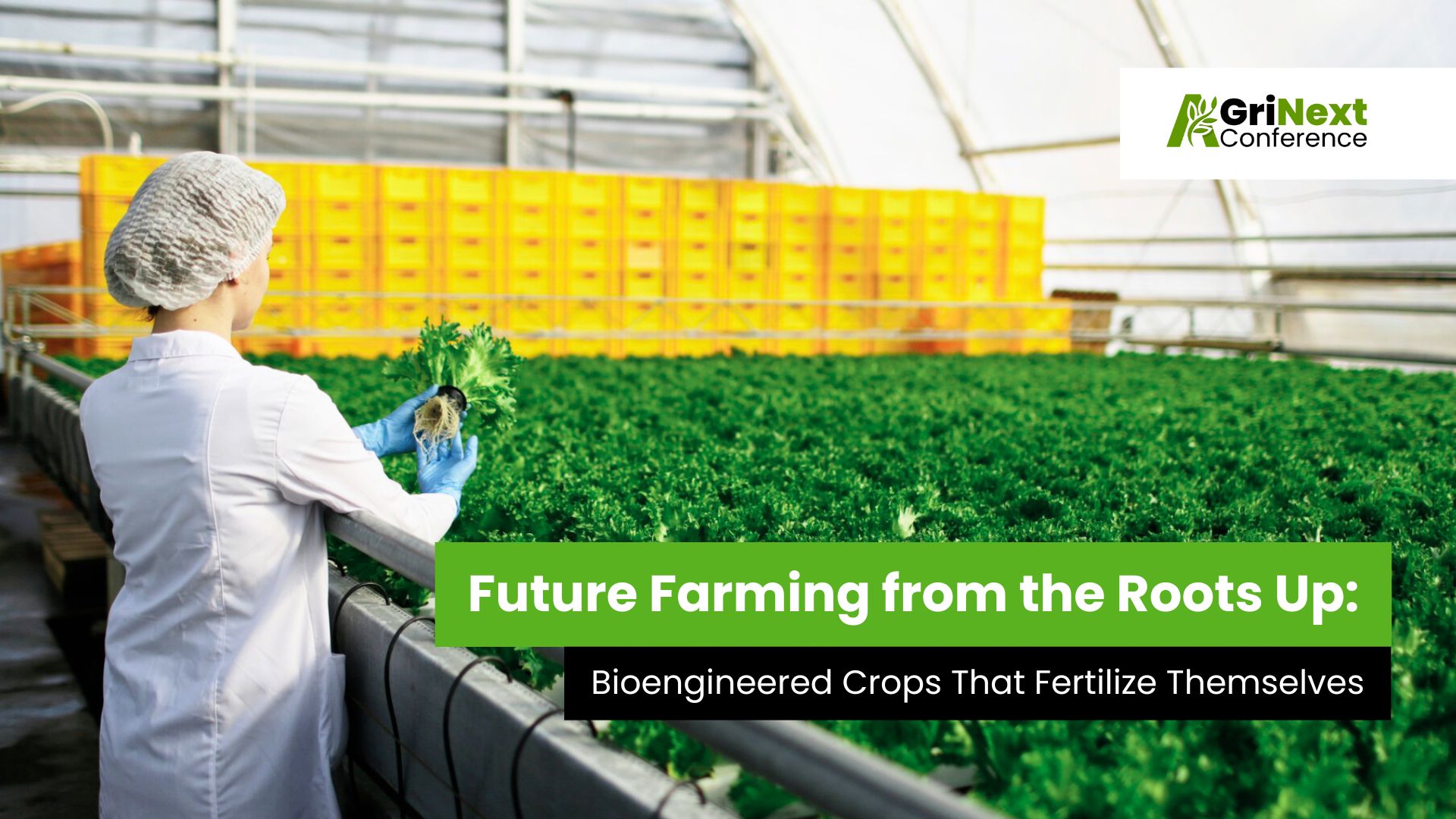
Explore the future of farming with self-fertilizing crops powered by microbial symbiosis. A breakthrough in sustainable agriculture with global impact.
In the green experimental fields of Wageningen, Netherlands, something revolutionary is taking root—literally. Agricultural biologists have bioengineered crops with a game-changing capability: their roots now excrete natural fertilizer as they grow. This innovation could eliminate the need for chemical fertilizers altogether, ushering in a new era of sustainable farming.
Nature Meets Science: The Rise of Self-Fertilizing Crops
This breakthrough is made possible through engineered microbial symbiosis. By tweaking the plant genome, scientists have enabled crops to form partnerships with beneficial microbes that live along their root systems. These microbes, introduced into special nodules, are no ordinary helpers—they’re designed to fix nitrogen from the air and convert it into usable nutrients, directly delivering them to the plant.
Instead of spraying urea or nitrate fertilizers, these crops naturally absorb nitrogen via protein channels in their roots. In some experimental models, phosphorus- and potassium-releasing microbes are also embedded, giving the plant a complete nutritional profile from within the soil.
What Makes This Different?
While traditional leguminous plants like soybeans have long relied on natural nitrogen fixation, what’s new here is:
The incorporation of multiple nutrient cycles (not just nitrogen) into a single microbial system.
The potential for dynamic root behavior—where the plant sends signals to stimulate more microbial activity in nutrient-poor zones of the soil.
This smart biological system helps reduce fertilizer use, improve soil health, and mitigate greenhouse gas emissions linked to fertilizer production and runoff.
Global Momentum
Although this development is centered in the Netherlands, it resonates with trends across the globe. In the U.S., companies like Pivot Bio and Joyn Bio are developing microbial fertilizers that reduce dependence on synthetic nitrogen. Globally, agri-biotech startups are racing to harness the rhizosphere (the soil-root interface) as a key zone for crop productivity and climate resilience.
In Asia and Africa, researchers are experimenting with region-specific microbial strains that can adapt to diverse soil types, from acidic to arid, making this innovation globally scalable. Collaborative projects are underway with local agricultural institutes to pilot these crops in real-world conditions.
What This Means for Food & Beverage and Fast-Moving Consumer Goods Entrepreneurs
For food and consumer brands, this technology represents more than just a farming innovation—it’s a sustainability advantage. Crops grown without synthetic fertilizers:
Have a smaller carbon footprint,
Appeal to eco-conscious consumers, and
Can meet the growing demand for clean-label sourcing.
This is especially relevant for product developers and buyers looking to future-proof their supply chains with regenerative practices.
AgriNext: Where These Innovations Take Center Stage
As the world looks toward scalable, tech-driven farming solutions, platforms like AgriNext Awards & Conference in Dubai provide a global stage for showcasing such breakthroughs. With a strong focus on biotech, sustainable inputs, and agri-innovation, AgriNext connects startups, scientists, and business leaders driving the next wave of agricultural transformation.
Keep an eye on this space—because the future of farming might just be happening underground.
Signup For AgriNext Conference Newsletter

